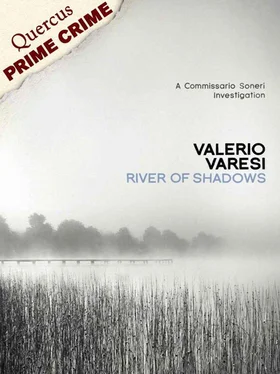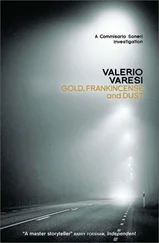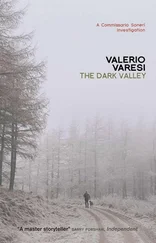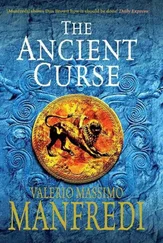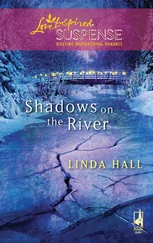Valerio Varesi - River of Shadows
Здесь есть возможность читать онлайн «Valerio Varesi - River of Shadows» весь текст электронной книги совершенно бесплатно (целиком полную версию без сокращений). В некоторых случаях можно слушать аудио, скачать через торрент в формате fb2 и присутствует краткое содержание. Жанр: Полицейский детектив, на английском языке. Описание произведения, (предисловие) а так же отзывы посетителей доступны на портале библиотеки ЛибКат.
- Название:River of Shadows
- Автор:
- Жанр:
- Год:неизвестен
- ISBN:нет данных
- Рейтинг книги:5 / 5. Голосов: 1
-
Избранное:Добавить в избранное
- Отзывы:
-
Ваша оценка:
- 100
- 1
- 2
- 3
- 4
- 5
River of Shadows: краткое содержание, описание и аннотация
Предлагаем к чтению аннотацию, описание, краткое содержание или предисловие (зависит от того, что написал сам автор книги «River of Shadows»). Если вы не нашли необходимую информацию о книге — напишите в комментариях, мы постараемся отыскать её.
River of Shadows — читать онлайн бесплатно полную книгу (весь текст) целиком
Ниже представлен текст книги, разбитый по страницам. Система сохранения места последней прочитанной страницы, позволяет с удобством читать онлайн бесплатно книгу «River of Shadows», без необходимости каждый раз заново искать на чём Вы остановились. Поставьте закладку, и сможете в любой момент перейти на страницу, на которой закончили чтение.
Интервал:
Закладка:
“Alright. I’ll tell Juvara to do a check on the staff in the ward and on everyone who had any business there,” he roared.
“Good idea. Reply to sceptics with actions. It’s always good to see them twisting in their seats when you demonstrate to them that they’ve got it all wrong.”
Soneri drove into the town, following the bends of the embankment. Volunteers hard at work glowered at him resentfully as he went by. In his Alfa sports, he must have looked like someone out on a jaunt while others sweated under the menace of Armageddon. He found Barigazzi observing the boat club shack, now one quarter filled with water. The river was lapping around the window of the front door.
“I have no more need of stakes. All I have to do is take a look at our premises. I know the measurements.”
They were both looking in the same direction, at the water caressing the riverbanks and the walls of the shack. It was disconcerting to think that concealed beneath such gentleness lay the capacity to inflict terrible destruction.
“Is it still rising as fast?”
“No, fortunately. A couple of centimetres an hour, but soon it will stop and then it will begin to drop. Look, see how it’s stopped raining on the mountains and started freezing.”
“So how will it all end?”
“Nothing will happen if the fog persists. All this rushing about
…” Barigazzi wailed, pointing at tractors and lorries which were taking away people and their furniture. “If only they would listen to people who know. It’s as if their arses were on fire.”
“I have to ask you something,” Soneri said.
Barigazzi turned quickly towards him with a piercing glance, as though to make sure he was still at his side. “O.K., but let’s go over to the bar,” he replied, indicating Il Sordo with a jerk of his head.
The landlord still had his hearing aid switched off. This time Barigazzi kept his two fingers raised until he received a silent assent.
The commissario watched him move into the kitchen, and so failed to note the arrival of Torelli, Vernizzi and Ghezzi. He felt himself surrounded, one of the undesirable situations they used to harp on about during training. The men took their seats around the table as silently as they had entered. It was as if they were keeping an eye on each other, as though a password had been exchanged between them. In that position, Soneri felt the unease of a man in the dock. The embarrassment was broken by the deaf landlord, to whom Barigazzi, after a wave which plainly indicated an addition to the order, made a sign with three fingers. Then, looking at the Christ with the drawn-up feet, the old man announced: “Another three days of flooding.”
No-one made any comment until the drinks arrived and the slow notes of Verdi’s “Requiem”, coming from some mysterious emptiness, reached them. They raised their glasses of the foaming Fortanina in a wordless toast. The wine gave its own mute pleasure, but the tension became unbearable after the first sip.
Soneri decided to break the silence: “So, who was ‘the Kite’?”
It seemed as though all four men had swallowed a glass of dregs. Their ashen, impassive faces were masks of hostile indifference, as though carved in marble. His eyes circled from one to the other, ending with Barigazzi, like a roulette ball finding its slot.
“Why do you ask?”
“It’s to do with Tonna.”
“There are no kites around here. At most, there might be some hawks, but…” Barigazzi was attempting to extricate himself.
“There was one. I have Tonna’s word for it,” the commissario insisted.
“All sorts of things go on along the Po. You see some of them, you hear about others. The first are obvious, the second are a matter of faith.”
“You don’t believe what Tonna said?”
“I don’t know. There’s so much chatter…there was one guy who saw sturgeons leap over the Viadana bridge, another one whose chickens were devoured by a catfish…in Ferrara, they still talk about the magician Chiozzini who one day at Pontelagoscuro sailed up into the skies in a horse-drawn carriage…”
“We even have a village which appears and disappears…” Torelli said.
“No,” said Soneri decisively. “‘The Kite’ is a nickname. A nickname of someone from around here.”
“Are you sure of that?” Ghezzi said with a voice in which the commissario detected the faintest trace of alarm.
“Yes,” he said, dissembling as skilfully as he could.
The four men exchanged rapid glances. They had spent years together and must have understood each other in a matter of seconds, in a wager between Verdi and the Fortanina.
“A partisan,” Soneri said, doubling the wager. His mind raced to Tonna and his Fascist past.
“So many have passed along this way…” Barigazzi said, now sure of himself.
The commissario immediately realized he had made a false move. He should have fostered the tension he noticed growing among the four men, but instead he had quite suddenly given it release, affording them an easy way out. However, as he had been about to play his hand, Alemanni, with his scepticism and his invitation to stick to facts and steer clear of conjecture, had swum back into view. And everything had collapsed.
“This was frontier land. There were some on the run, some who crossed the river to join up with others. Fascists disguised as partisans. Partisans dressed in black shirts, double agents, spies. There were all sorts.”
“There were also real partisans,” Soneri said, trying to find his feet again.
“Yes, members of the group called — what was it? — G.A.P., Gruppo di azione pattriotica, the armed partisan group. For the others, this plain was too dangerous. A brigade of Germans could sweep across it in half a day.”
“And no-one who went by that name?”
“Listen.” Barigazzi came in quietly. “I am seventy-five and at the time I was not much more than a boy. This lot” — he indicated the others — “were children. How could we remember?”
“You don’t only remember the things you have lived through yourself.”
“Here the partisans were all communists. The man you are talking about might have been loyal to General Badoglio, cut off from his unit
… There were a lot like that in Lombardy.”
“Would no-one in the party know him? Among the older members, I mean.”
“The party,” Barigazzi snorted, with a theatrical wave which seemed in harmony with the music as it rose in a crescendo towards a closing climax. “What’s left of the party? Just what you can see outside here,” he said, pointing down to the Po. “A fleeing rabble trying to carry with them as much as they can, knowing full well that they’ll not be able to save much and that the best part of their things will be taken by the river. That’s what the party is.” His words tailed off, leaving him to stare grimly ahead, angrily gulping at the wine left in the bowl.
“You don’t forget certain things. You haven’t.”
“All that’s left are memories,” said Barigazzi acidly. “And there is no pleasure in raking over them.”
“I am sorry, but I am afraid I am going to have to do some raking. Or some wading.”
“Well then, it might be better to let the water levels drop,” Torelli said. “Bit by bit, everything will become clearer.”
Soneri looked at him and there appeared on the man’s face the slightest, fleeting outline of a smile. “When the rivers drop, the waters turn clearer but they cover the riverbeds with sand.”
“You’re a man who knows how to dig about,” Torelli said, in a tone which appeared to carry some kind of dark threat.
“You haven’t told us if you’ve been to inspect the barge,” Ghezzi said.
“I have. And the dinghy is missing.”
Читать дальшеИнтервал:
Закладка:
Похожие книги на «River of Shadows»
Представляем Вашему вниманию похожие книги на «River of Shadows» списком для выбора. Мы отобрали схожую по названию и смыслу литературу в надежде предоставить читателям больше вариантов отыскать новые, интересные, ещё непрочитанные произведения.
Обсуждение, отзывы о книге «River of Shadows» и просто собственные мнения читателей. Оставьте ваши комментарии, напишите, что Вы думаете о произведении, его смысле или главных героях. Укажите что конкретно понравилось, а что нет, и почему Вы так считаете.
